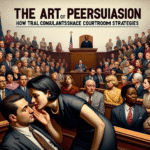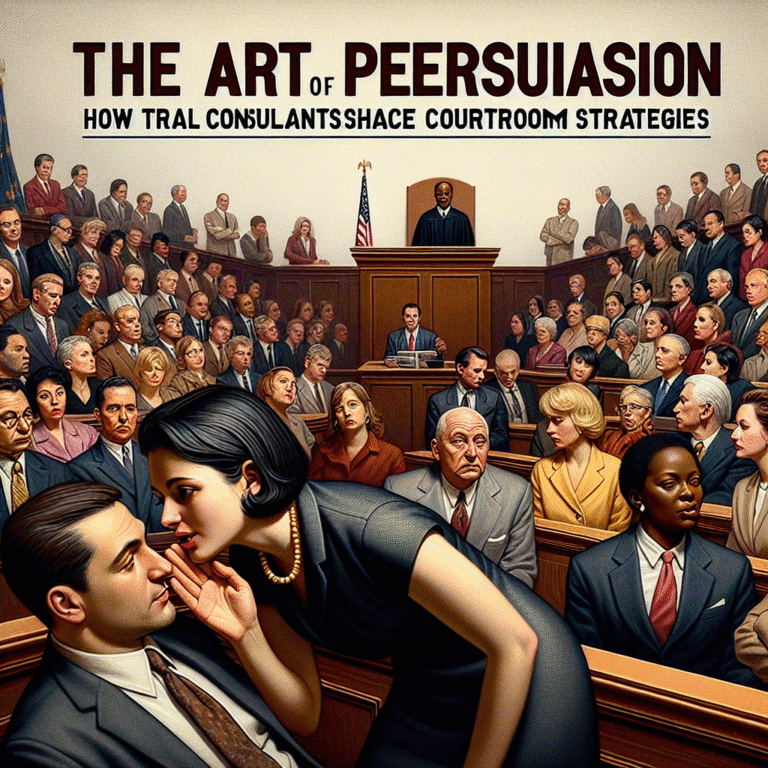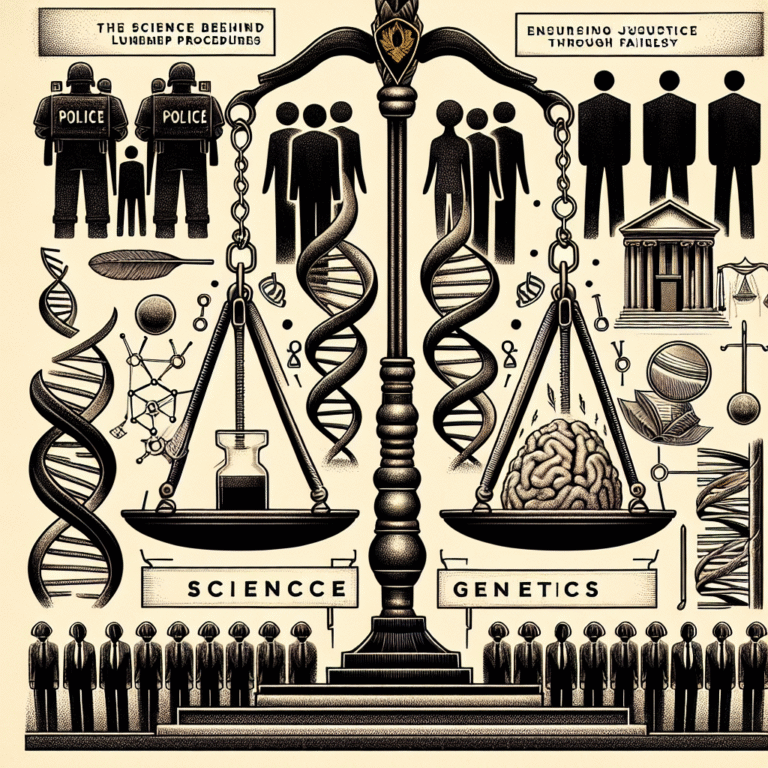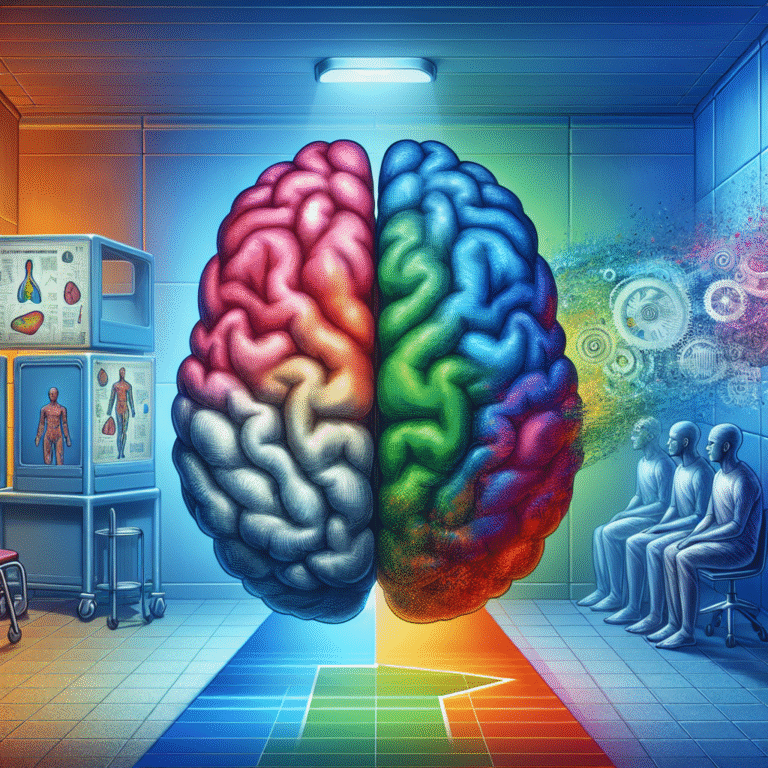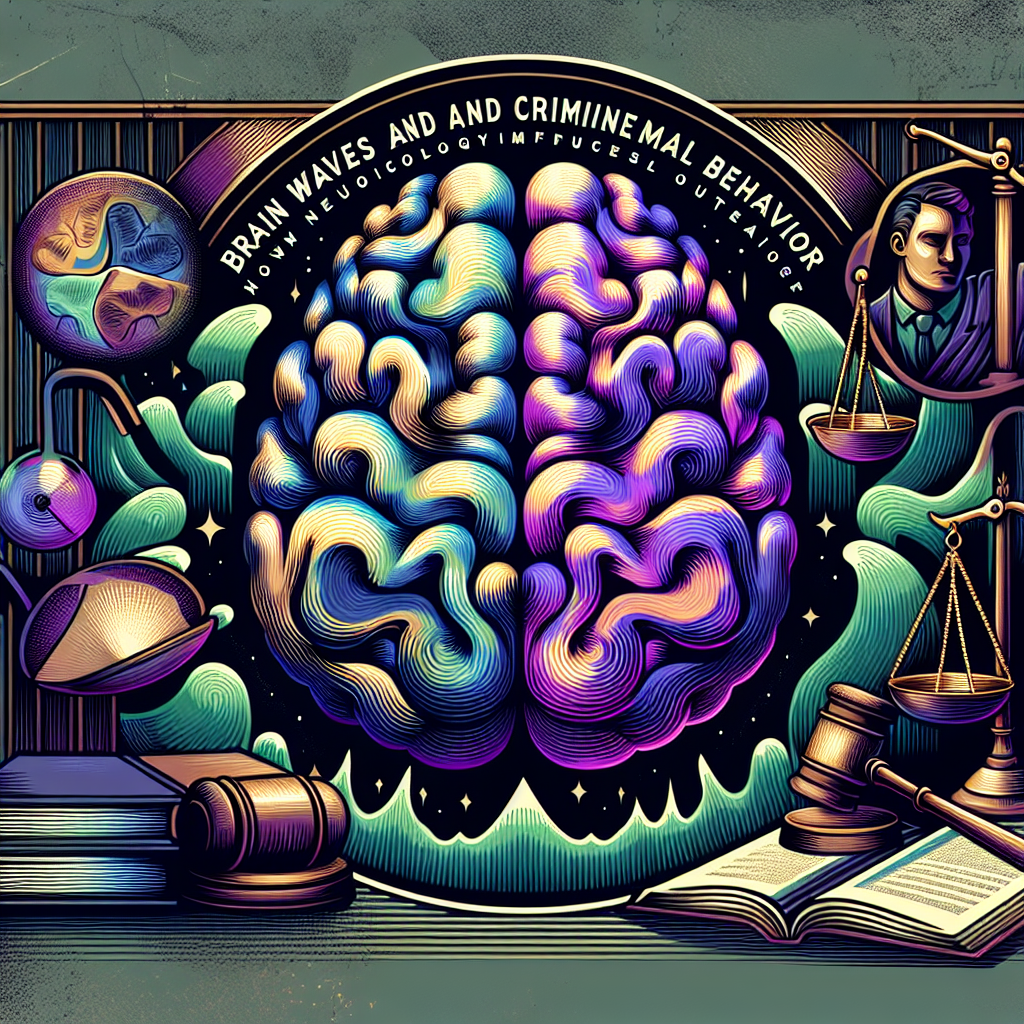
Introduction
Imagine a courtroom where the most compelling evidence isn’t just a confession or a surveillance video, but the very signals emitted by a person’s brain. The intersection of neuroscience and law is no longer the realm of science fiction; it’s a burgeoning field of study impacting judicial decisions, jury perceptions, and the understanding of criminal intent. This article, Brain Waves and Criminal Behavior: How Neuropsychology Influences Legal Outcomes, delves into how our brain’s electrical activity can shape criminal behavior and influence legal outcomes, transforming justice as we know it.
The Foundations of Brain Waves
Understanding Brain Waves
Brain waves are electrical impulses in the brain, categorized mainly into five types: Delta, Theta, Alpha, Beta, and Gamma. Each type of wave corresponds to different states of consciousness and cognitive functioning. For instance, Alpha waves are dominant during relaxed, calm states, while Beta waves are associated with active thinking and problem-solving.
Monitoring Technology
Advancements in EEG (electroencephalogram) technology allow for the real-time monitoring of these brain waves, offering unprecedented insights into a person’s mental state. In the courtroom, such data could reveal emotional responses during testimonies, hinting at truthfulness or deception.
Neuropsychology as a Tool in Criminal Justice
The Role of Neuropsychology
Neuropsychology studies the relationship between brain function and behavior. This branch of psychology plays a crucial role in understanding criminal behavior, helping to bridge the gap between biology and behavior. Research suggests that abnormalities in brain wave patterns can correlate with impulsive behavior, aggression, and even psychopathy.
Case Study: Brain Imaging and Criminal Responsibility
A landmark case involved James Holmes, who carried out the Aurora theater shooting in 2012. Neuropsychological evaluations indicated anomalies in his brain function, subsequently influencing discussions about his criminal responsibility. Investigating how brain waves can be a reflection of criminal intent provides unique insights into the workings of the mind and its impact on legal outcomes.
How Brain Waves Affect Criminal Behavior
Impulsivity and Decision-Making
Research shows a significant connection between specific brain wave patterns and impulsive decision-making. For example, individuals with heightened Beta wave activity may exhibit increased impulsivity, leading to violent actions. Understanding this relationship is essential for juries and judges when determining culpability.
Crime vs. Mental Health
The distinction between criminal behavior and mental health issues often lies within neuropsychological evaluations. A notable example is the case of Andrea Yates, who drowned her children and was later diagnosed with severe postpartum psychosis. Brain wave analysis revealed irregularities that played a pivotal role in her legal defense.
The Impact of Neuropsychology on Legal Outcomes
Precedent in Legal Defenses
The knowledge garnered from Brain Waves and Criminal Behavior: How Neuropsychology Influences Legal Outcomes can establish new precedents in legal defenses. As neuroscience continues to develop, courts may increasingly accept brain-based evidence.
Case Study: The Use of Neuroimaging
In the notable case of the “brain scan defense,” a defendant used brain imaging to argue for a reduced sentence. This strategy hinged on demonstrating that his brain function, assessed via EEG, contributed to his criminal behavior, potentially shifting perceptions about free will and responsibility.
Understanding Jury Perception
The introduction of neuropsychological evidence alters jury perceptions. Jurors may show leniency towards defendants whose brain waves reveal diminished cognitive control, highlighting the evolving nature of justice in light of scientific understanding.
Enhancing the Legal Framework with Neuropsychology
Ethical Considerations
Incorporating brain wave analysis into legal proceedings raises ethical dilemmas, including privacy concerns and the potential for misuse of data. Establishing ethical guidelines is crucial for the responsible integration of neuropsychology in courts.
| Ethical Considerations | Description |
|---|---|
| Privacy | Ensuring that brain data is managed respectfully and confidentially. |
| Misuse | Establishing parameters to prevent the exploitation of brain data in manipulative ways. |
| Informed Consent | Guaranteeing that individuals understand the implications of their brain data being used in court. |
Future Directions
As neuroscience advances, the legal system may adopt more robust frameworks that incorporate neuropsychological principles. Continuous dialogue between scientists and legal experts is critical in shaping how brain waves will influence criminal behavior assessments.
Conclusion
Brain Waves and Criminal Behavior: How Neuropsychology Influences Legal Outcomes presents an illuminating exploration of how our understanding of brain activity can reshape the justice system. Whether through influencing sentencing guidelines, redefining culpability, or impacting jury decisions, the relevance of neuroscience cannot be overstated. As society continues to evolve, so should our understanding of the intricate connections between mind and behavior, ensuring justice is both served and understood.
FAQs
1. Can brain wave data be used in court?
Yes, brain wave data can be presented in court as part of a neuropsychological evaluation, though its acceptance may vary depending on jurisdiction.
2. How does neuropsychology differ from traditional psychology?
Neuropsychology focuses specifically on how brain function influences behavior, often using techniques like EEG and MRI, while traditional psychology may encompass broader aspects of mental health.
3. Is mental illness considered in criminal behavior assessments?
Yes, mental illness is significantly considered. Neuropsychological evaluations help to establish whether a defendant’s mental state influenced their behavior.
4. What future implications could neuropsychology have in law?
As technology advances, neuropsychology could lead to new legal standards for assessing criminal responsibility and could potentially change how juries interpret a defendant’s actions.
5. Are there risks associated with using neuropsychological evidence in court?
Potential risks include privacy concerns, misinterpretation of data, and ethical dilemmas regarding informed consent and the possibility of reducing personal accountability.
This deep dive into Brain Waves and Criminal Behavior: How Neuropsychology Influences Legal Outcomes showcases the transformative potential of understanding brain activity in shaping criminal justice, offering hope for a more equitable society informed by science.

